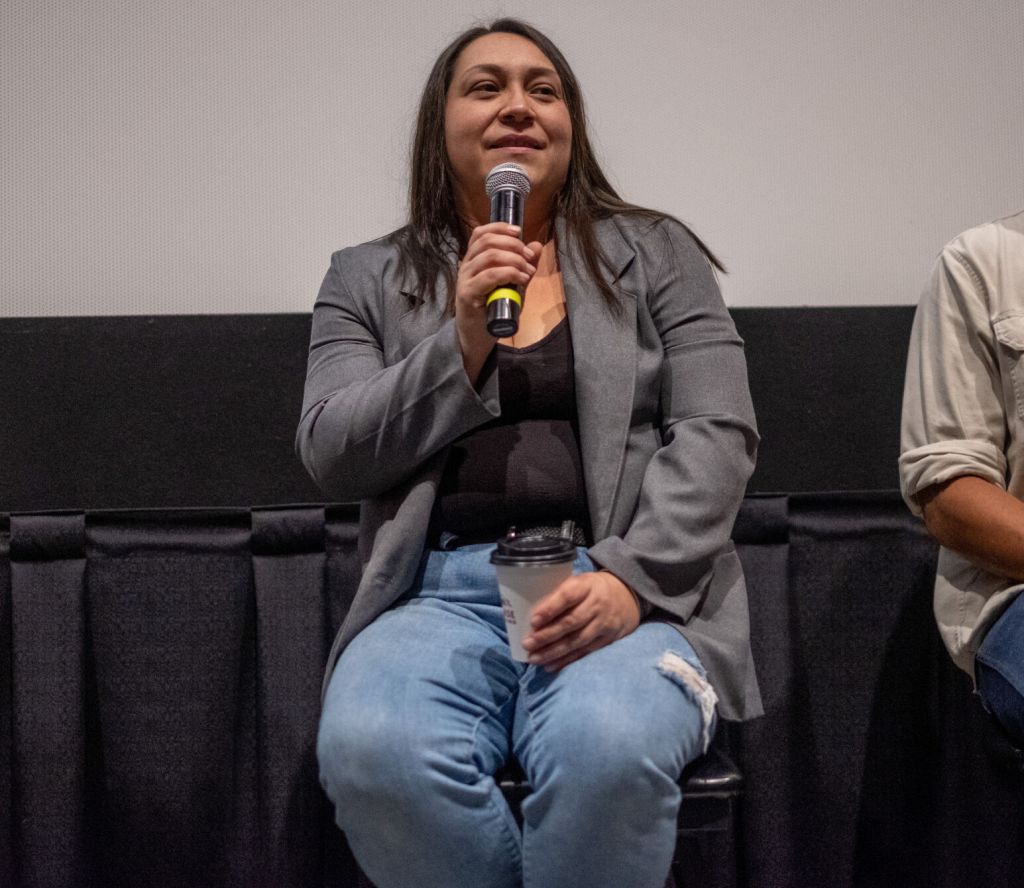Food sovereignty principles create connections with land, people, culture
Published 5:00 am Friday, October 6, 2023

- Sadie Mildenberger, food entrepreneur, talks about opening up her coffee shop Wednesday, Oct. 4, 2023, at the Northwest Native Economic Summit at Wildhorse Resort & Casino in Mission.
MISSION — Jennifer Rose Marie Serna, owner of Wapato Island Farms, was one of seven panelists talking about food sovereignty at the Northwest Native Economic Summit at Wildhorse Resort & Casino on the Umatilla Indian Reservation near Pendleton.
Trending
Serna, whose farm is volunteer-based, focuses on growing herbs for traditional medicines that she learned of through her grandma, her “abuelita.”
Serna during a panel discussion Wednesday, Oct. 4, at the summit, said food sovereignty is connection with the land and connection with community.
“Remembering the ways, remembering the stories and remembering that food is not just here to be consumed,” she said, “but to actually have (a) relationship with and to honor in a good way and to remember.”
Trending
Skill-sharing is a big component what Wapato Island Farms does, she added.
“It’s a lot of work, but it feels really good to be in reciprocity with our community and with our land,” she said.
Serna now is beginning to focus on connecting with others who farm and garden to support one another.
Another panelist, Lamar Minthorn, said during the session that knowing where their food comes from is a big draw for the patrons of his commercial fishery, Tutuilla True Fish.
He sells mainly at farmers markets, and has noticed his customers repeatedly come to him because they trust him and like to know the origin of their fish.
However, access to traditional foods is difficult for many tribal members.
Sadie Mildenberger, a member of the Confederated Tribes of the Umatilla Indian Reservation, said she hopes the coffee shop she is opening in the tribal governance building will consistently bring cultural dietary options to customers.
She said she wants to emphasize local and First Foods beyond the well-known salmon and huckleberries. First Foods are what Indigenous peoples ate prior to colonization, and rely on what the land provides throughout each season.
“We will be the only food service area that will be specializing in our local flavors,” Mildenberger said, including rosehips, chokecherries and elderberries.
“So that is something a little bit different about our service,” she said.
Working in traditional ways and moving away from an extractive mindset — toward one of service and reciprocity — was an idea repeated across the panelists.
Serna, the medicinal herb grower, said the slow pace of growing has been an important piece of her farming practice for the past 18 years.
Working slowly, calmly, has allowed her to connect with volunteers on the farm as well as with the earth. She believes there is more space for human emotions and imperfections.
Taking the time to connect with the land, and with each other, is important to Serna. For her, that’s what food sovereignty is at its core. Slow, intentional connection.
“We’re doing our best to remember what it is to honor these lands and not to just dominate, but to actually live with,” Serna said. “It just takes time. My granny, she uses the bean pot [metaphor], it’s slow cooking. It takes time, and you can’t hurry these things.”









